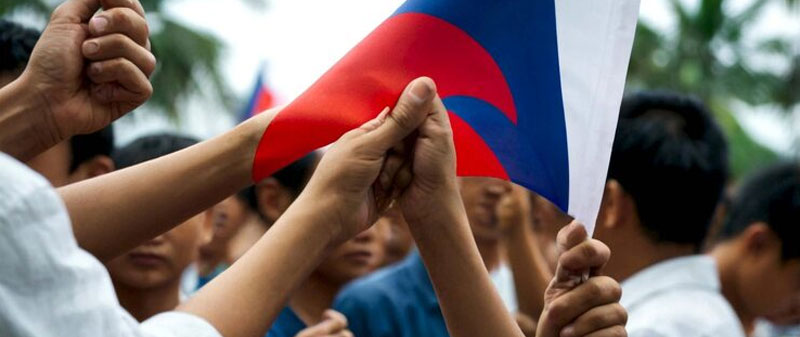August 13, 2025 2:13AM
Sabah Voters Sentiment June 2025

Sabah Voters Prioritise Economy, Healthcare and Leadership as 2025 State Election Nears
A new statewide survey of 536 registered voters residing in Sabah in June 2025 has revealed key insights into the political sentiment ahead of the 2025 Sabah State Election. Conducted using Vodus’ proprietary OMTOS online survey technology — which reaches millions of Malaysians via top digital publishers such as Astro, Media Prima, Star Media Group, and Sinar Harian — the poll captures a representative cross-section of Sabah’s diverse electorate, covering various age groups, genders, income levels, ethnic backgrounds, and constituencies.
High Turnout Expected, With First-Time Voters in the Mix
The survey found that 80% of registered voters in Sabah are likely to cast their ballots in the upcoming state polls. Among these likely voters, 8% will be heading to the polls for the first time. This reflects a healthy level of political engagement across the state, even as significant portions of the electorate remain undecided about their preferred party.
GRS Leads, But Undecided Voters Hold the Key
When asked about their most supported political party, respondents placed Gabungan Rakyat Sabah (GRS) in the lead with 25% support, followed by Barisan Nasional (BN) at 13%, Pakatan Harapan (PH) at 10%, and Warisan at 9%.
However, a striking 32% of Sabah voters remain undecided, creating a major opportunity for parties to shape the narrative in the coming months.
Breaking down the numbers further:
- By age: GRS dominates among voters aged 35 – 44 (34% of the voters in the group), while BN enjoys stronger support among 25 – 34 years old voters. PH finds its strongest backing among those aged 45 years old and above, though it is not the top choice in any age group. Notably, voters aged 35–54 are the most undecided (41% of the voters in the group).
- By race: GRS is the preferred party among Malays (29%) and Indigenous Sabahans (26%), which includes Kadazan-Dusun. BN is the top choice for Chinese voters (37%) and the second choice among Malays (23%) but ranks only fourth among Indigenous Sabahans (7%).
- By household income: B40 voters show the highest level of indecision, with 42% yet to declare a preference.
When measuring the likelihood of supporters actually voting for their chosen party, PH (80%) and GRS (78%) supporters show the strongest commitment, followed by BN (73%). Warisan supporters are less certain, with just 53% saying they will definitely vote for the party. Among decided voters, the effective polling score stands at GRS (26%), BN (13%), PH (10%), and Warisan (8%).
Economy, Cost of Living, Healthcare Tops the List of Voter Concerns
When asked about the issues most important to their voting decision, Sabahans put Economic development (54%) at the top. The issue resonates especially strongly among Indigenous Sabahans voters, and the M40.
Close behind are the Cost of living (47%), Healthcare (41%), and Employment opportunities (41%). The issue of Healthcare is particularly of a concern among Chinese voters, while Cost of living is particularly of a concern to Indigenous Sabahan.
The second tier of important issues includes corruption, infrastructure, and environmental protection. Meanwhile, management of illegal immigrants, education, and state autonomy rights under MA63 rank as third-tier issues.
Interestingly, MA63 — despite its historical and political significance — ranks lowest among all issues tested. Analysts suggest this could be due to a general lack of awareness or understanding of the agreement’s implications. The groups most likely to consider MA63 “very important” are Indigenous Sabahans, Chinese voters, and those aged 35–54.
Leadership Matters Most in Candidate Choice
When it comes to the factors influencing voting decisions, leadership qualities emerge as the clear priority, with 66% of voters rating it as the most important consideration. This sentiment is particularly high among Indigenous Sabahans and Malays.
The second-most important factors are a candidate’s background and quality and economic policies, each influencing about half of all voters. These are especially important for Chinese voters and those aged 35–64.
Party manifestos and track records form the third tier of decision-making factors, with older voters aged 65 and above showing a greater tendency to vote along party lines.
What This Means for the 2025 Sabah Election
The findings suggest a competitive and fluid political landscape in Sabah, with GRS holding a modest lead but a significant portion of the electorate still up for grabs. With nearly one-quarter of voters undecided — and B40, middle-aged and indigenous Sabahan voters showing particularly high levels of indecision — targeted outreach and issue-specific campaigning could be decisive.
Healthcare’s prominence as a top tier voter concern signals a need for parties to present clear, credible plans to improve medical facilities and services across Sabah. Likewise, economy and cost of living are likely to be central talking points, especially among younger voters and those in lower-income groups.
The emphasis on leadership qualities indicates that personalities may matter as much as party platforms. Candidates perceived as strong, capable, and trustworthy may have an edge, particularly in swing constituencies.
Meanwhile, the relatively low ranking of MA63 and other state autonomy issues highlights a potential gap in public understanding. Parties advocating for stronger state rights may need to invest in public education and communication to make their case resonate with voters.
Conclusion
As Sabah heads towards the 2025 State Election, the race remains open, with GRS in the lead but a large pool of undecided voters capable of shifting the outcome. Issues like economy, cost of living and healthcare will likely dominate the campaign, while leadership qualities could prove the deciding factor at the ballot box.
The survey findings make it clear: in Sabah’s complex and diverse political environment, winning will require more than just party loyalty — it will demand the right mix of policies, personalities, and public engagement.













